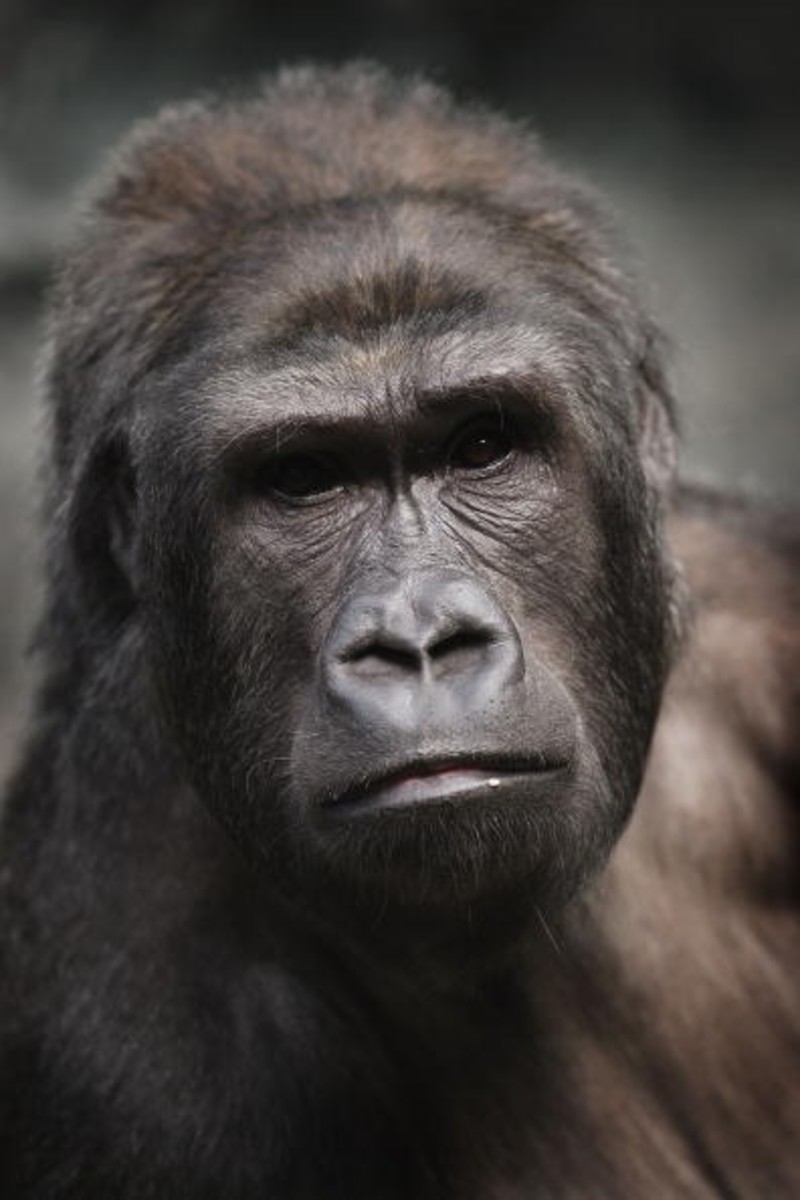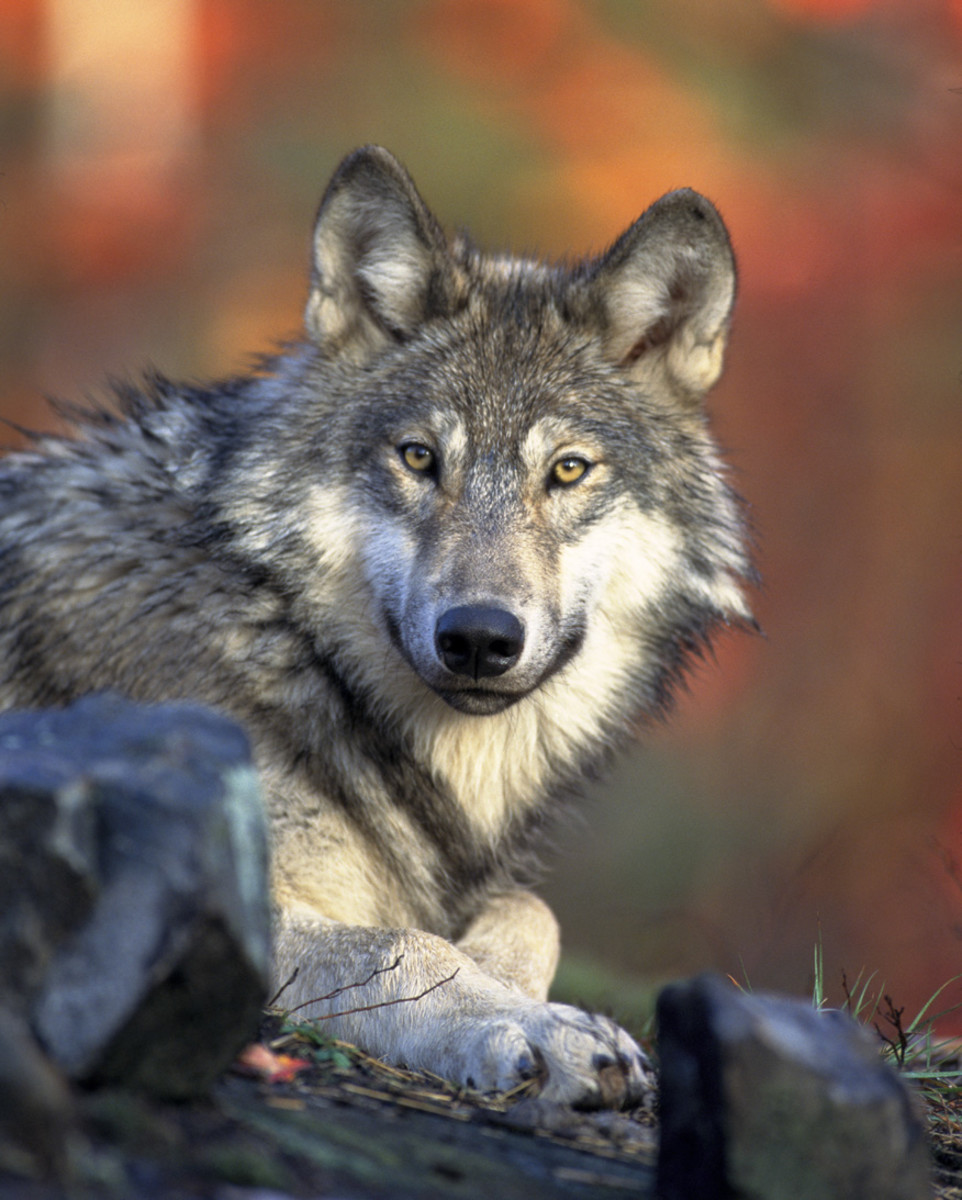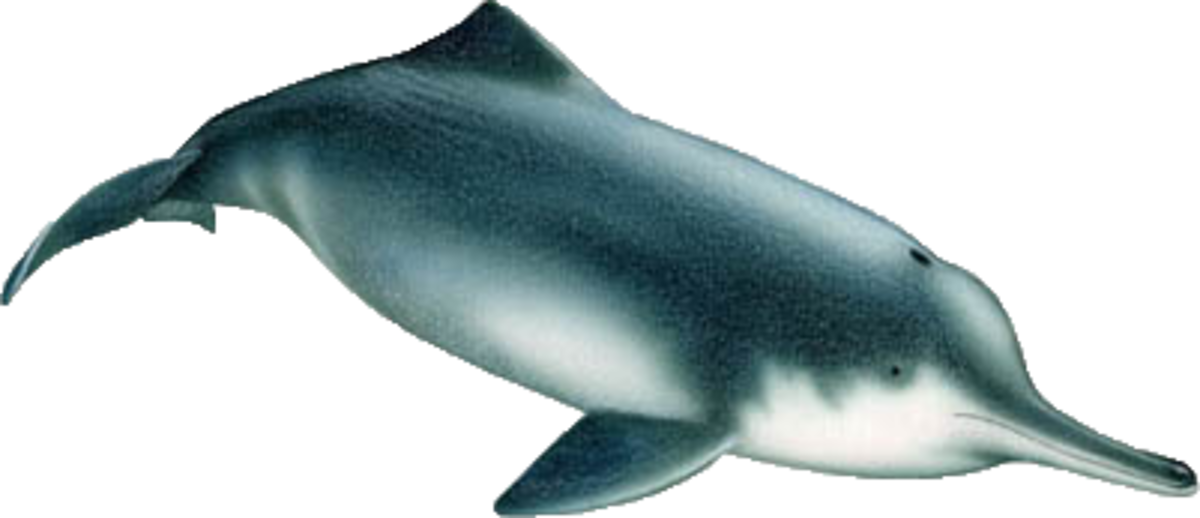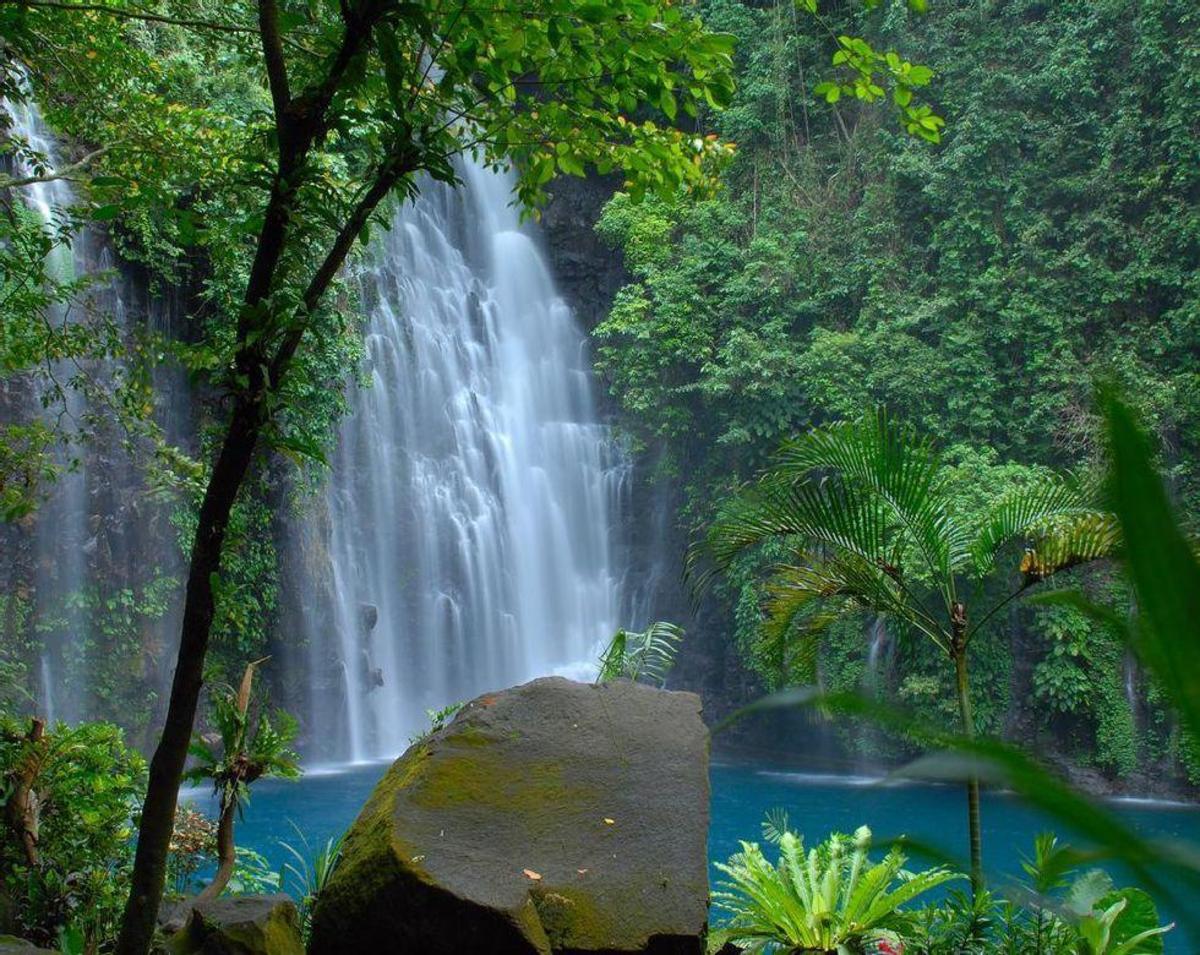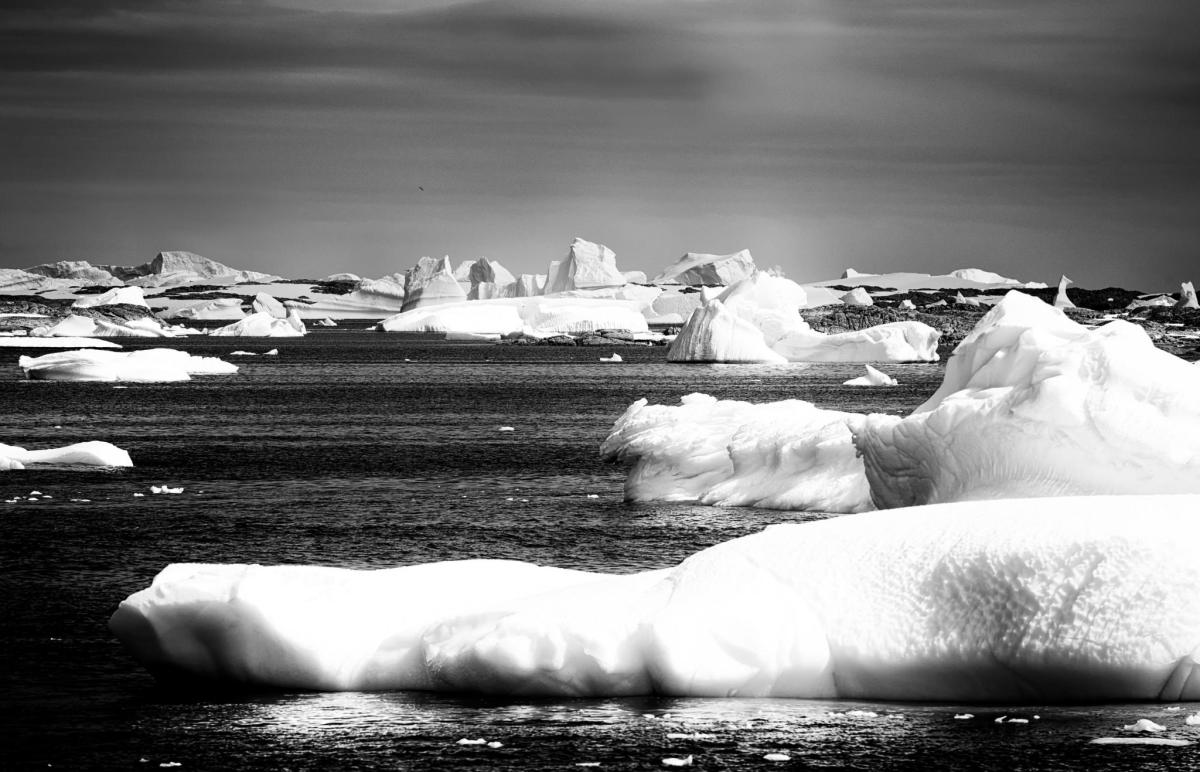Why Endangered - The Reasons Why Animals Become Endangered
For milllions of years the planet Earth has been lucky. It has been full of thousands upon thousands of different species; diverse planets, lanky trees, minute flowers; large mammals, tiny rodents, sly reptiles; humans, dolphins, apes. The list of species which rule the land could fill this entire page - or, at least it used to be able to.
In only the last hundred years has this list started to change significantly, and most of it is due to what we are doing. What am I talking about? I'm talking about endangered species; I'm talking about the turtles, the dolphins, the seahorse, the African mammals, the jellyfish, and the sea otter; I'm talking about a new list that is starting to be formed. I'm talking about a list of endangered species.
What's endangered mean exactly? Well in straight forward, 'this may hurt a little', terms it means simply this:
An endangered species is a species that is most likely, in the near future, to become extinct. Or, if you would like to relate this back to us, you could say that the more we populate the globe, the less room there is for other species.
The question then, which everyone should be asking, is,
Why Endangered?
_______________________________________________________________
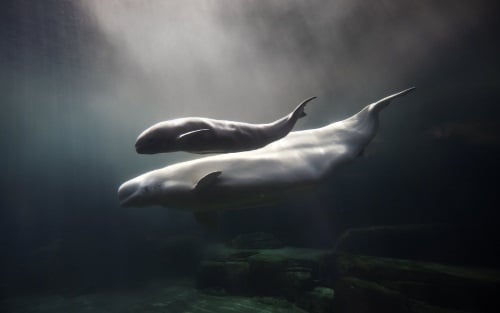
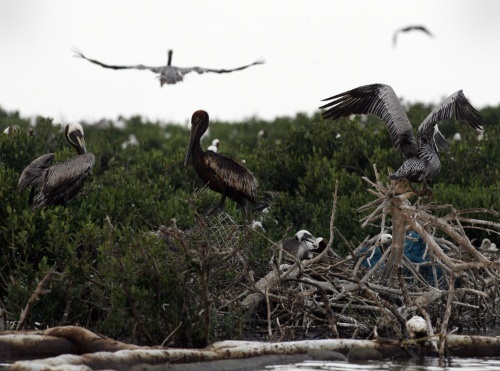
The Reasons Why Species Become Endangered
When it comes down to it, it can all be put into a scientific explanation. Now whether we do this to make things easier on ourselves - it's a way for us to step back from the problem, look at it as a third party, and maybe not truly feel it as we would normally - or we do it because it's the only way we know how to solve the problem doesn't matter. What does matter is that its happening, everywhere; what does matter is that we need to find a way to stop it.
It has been determined, which is a step in the right direction, that there are four main causes for this detrimental decrease in species. They are:
- Habitat Destruction
- Pollution
- Competition from other species/introduction of exotic species in new environments
- Overexploitation
_______________________________________________________________
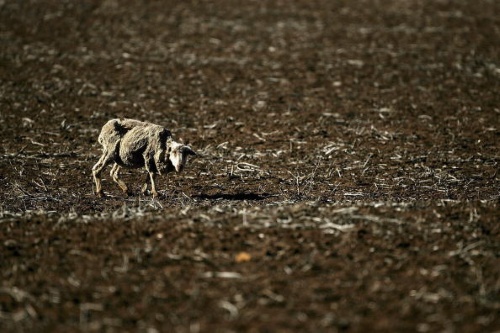
The Impossible Destruction
One and one-half acres of rainforest are lost every second with tragic consequences for both developing and industrial countries.
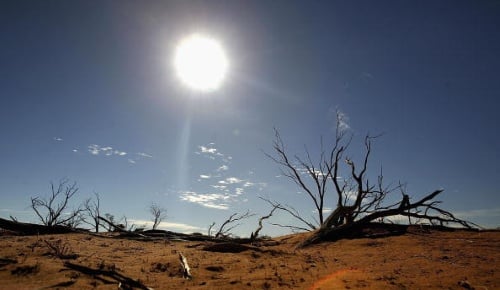
Why Endangered - Habitat Destruction
We love our homes, the routine we get into, the comforts we create for ourselves. Some of us go to work, and come home, relishing in the beauty of just being able to sit on a couch in comfort. Some of us live in a single home are entire lives, not caring about change, just satisfied in having a safe place to reside for the continuum of life.
Now imagine if that home was snatched away from you. And I don't mean taken away from you gradually like, say, by being told you have to move - no, I mean instantly taken away, like from a deadly fire or hurricane. How would you feel? Luckily you 'd have people around you, supporting you, helping you, probably giving you food and shelter if you need it. Your habitat would be destroyed, but not the niche you live in; in other words, you would be able to find a new home.
Now take the above scenario and use it with any kind of animal or mammal. Now multiply that by hundreds. Then thousands. The difference between a habitat destruction for us and a habitat destruction for them is simple - afterwards they usually have nowhere else to go. There homes are destroyed, and thus there way of living is destroyed, and with no where to live they too are destroyed. They become endangered, and then they become extinct.
Habitat destruction happens everyday. The destruction of the rain forest causes thousands of species to be without home; the oil spill in the Gulf is causing hundreds of species to migrate away, many of them away from the only home they know; pollution and global warming is changing environments, causing many species to find a new niche and a new home. The bottom line is this - the more we create, the more we disrupt, and the more homes and species we consequently destroy.
_______________________________________________________________
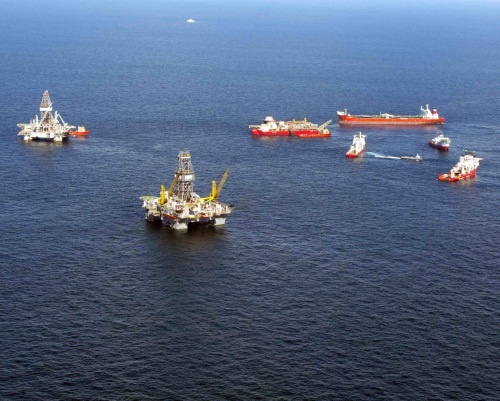
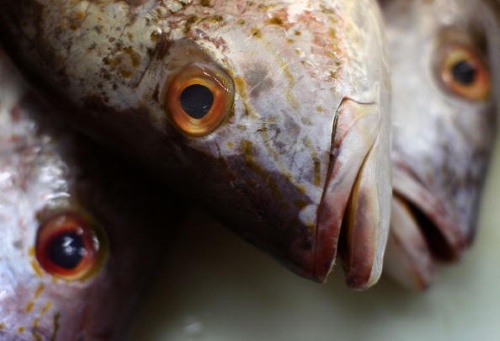
Why Endangered - Pollution
You've heard it before:
"We are killing our planet."
Unfortunately that statement has a lot of truth to it, and, even more unfortunately, it's a statement which is becoming more and more relevant by the day. We pollute the air, the water, nature itself. Although the effects of pollution aren't as apparent as say, habitat loss, they are just as deadly. The best - or perhaps I should say worst - example of this is in the Gulf where the biggest oil spill in US history has occurred. Thousands upon thousands of square miles in the ocean have been taken over by the black muck, and that means that thousands upon thousands of natural habitat is being destroyed.
The coral is being killed; sea turtles are being forced to migrate away; whales and fish are being poisoned on a daily basis; even birds, who hunt many of the fish in the area, are being poisoned by the pollution. It's one of the greatest natural disasters the world has ever seen, and rightly so; many of the species which were living in the gulf have begun to become endangered. It's mother natures worst nightmare.
Pollution is more of an invisible poison, something that, at times, can take years before the effects become noticeable. Take global warming, for example. We've been polluting the atmosphere for decades and it's only recently that we've deemed it has a massive problem. The greenhouse effect is causing temperatures worldwide to rise, and this is changing habitats around the world. Nature likes equilibrium; it flourishes in a balanced environment. In a strong, and safe, habitat, the energy flowing through it is balanced - what goes in comes out.
When the temperature rises, this balance is altered.
Many animals are being forced to leave their environments due to a change in temperature; think of it as a change of energy levels in the natural system (by energy I mean food, decomposes, predators, and consumer), and when that happens many species cannot live anymore. It's a process which is fundamentally new to nature, and is one of the most deadly - as you will see later on.
Pollution. It's killing the world, and it needs to stop.
_______________________________________________________________
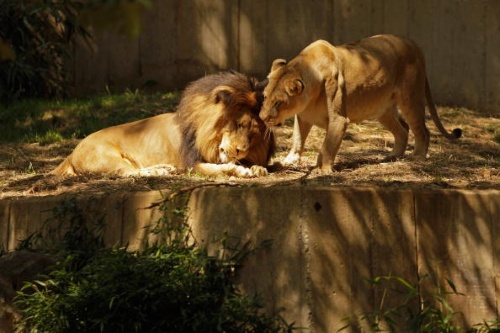
Overexploitation - The Fur Trade
One of the most deadly reasons why we hunt animals is for the fur. It is one of the most materialist things we do, and we've doing it for centuries. When the new world was first discovered over two hundred years ago, the first thing we did, in an off of peace,was trade fur with the people of the land. Thousands upon thousands of animals - beavers, bears, lions, tigers - are killed every year for the sole purpose of using there fur. Many times the possession of fur is a showing a wealth, a reason that is worth the life of no creature.
Why Endangered - Overexploitation
Or, in other words, the hunting of animals. Overexploitation is when a species of animal is overly hunted to the point where the species actually becomes endangered. This is probably the most vicious reasons why there are endangered species in the world, and, with the same token, can be the most easily fixed. I mean, think about it: if a species is endangered because we hunt to much of it all we have to do to save that species is to stop hunting it. It's not like habitat destruction and pollution where the solution isn't as black and white. Here we either stop the problem, or kill the species into extinction.
Luckily there has been some success when it comes to saving species whom were endangered due to overexploitation. Back in the early 21st century whale hunting was a prominent activity for many countries. So much so that many whale species, such as the great blue whale and gray whale, were on the verge of extinction. The leaders of the world saw this and reacted; they all agreed to abide by whaling laws in an effort to save the endangered species. it worked and many of these whale species have made remarkable comebacks, some of them even back to population numbers from hundreds of years ago.
Aside from the success of the whales there are still numerous species which have become endangered due to overexploitation. In Africa there are many illegal poachers which roam the land, killing tigers, and rhinos,and then selling the fur, or horns, on the black market. There are many laws in place trying to prevent this, but it still continues to occur every year. As the population in Africa continues to rise - and if the poor living conditions remain the same - then the poaching in Africa is just going to get worse. The less land there is for humans to reside on, the less rationalization that the animals deserve to live there; with more people there will be less fight against the overexploitation of many animals.
_______________________________________________________________
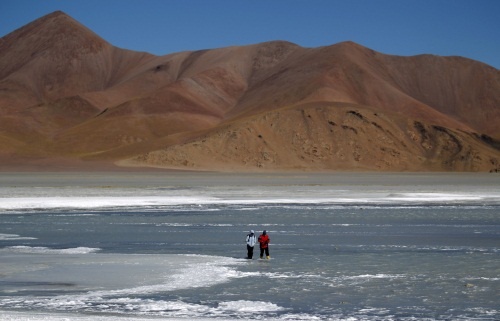
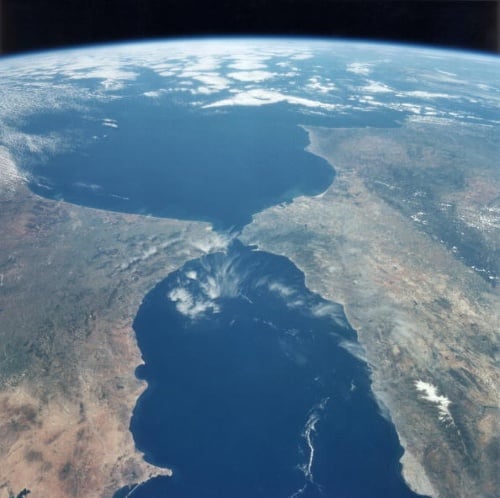
Endangered Species
- Endangered Australian Animals
Day by day that amount of animals that have left this planet is increasing. Endangered Australian animals are... - Endangered Gorillas and Monkeys
The list of endangered species is growing daily; the greater the population of human grows the greater the population of everybody else decreases. It's a terrible relationship, something which seems began thousands of years ago and has grown momentum
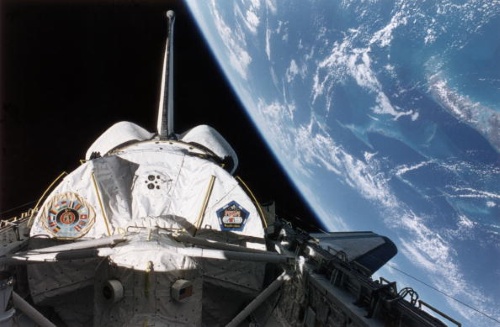
Why Endangered - Competition of Species
This reason is really a culmination of the other three; it's the end conclusion, the consequence, of the other three working together. This makes it the most powerful, the one with the most momentum, because it's something that is the work of Mother Nature, and not something caused by us- we, in a cruel sense, can do almost nothing to stop it.
The best way to understand this is to follow an example.
Take the oil spill in the gulf, for example. Millions of gallons of oil have been spilled in the ocean,a direct act of pollution by us. The pollution destroys the habitats of thousands of species. Due to habitat destruction many of the species which used to reside in the region have been forced to migrate out. In terms of biology - they are forced out of their realized niche and forced to find a new fundamental niche.
The problem is is that they were living in balance in Gulf - the energy levels for all things was equal. Like the food chain, everybody had there part: fish ate smaller fish, sharks ate fish, birds ate fish, fish ate plankton and so on. There was competition between the species but it was a realized competition, something that had been equaled and balanced centuries before.
So now imagine what happened when many of those species had to leave that system and find a new one. Do you think the new habitat was accepting of them - do you think it knew they were coming and had already compensated for it? No, not at all. What happened is the new species completed disrupted the system, completely confused the flow of energy. They, by trying to find a new fundamental nice, changed the realized niche of many other species.
Imagine it like this:
The bird that was living and eating much of the nutrients from the ocean in the Gulf is forced to leave due to the massive oil spill. It soars high, and flies fifty miles in land where it finds a small lake and a forrest. It figures it can live here, take the nutrients from the lake and forrest and survive; it even makes a bird call and calls its fellow family members - "I have found a new home". They are powerful birds so they easily take control of the land, eating the fish in the lake, and the acorns from the trees. They in a sense, quickly find a new realized nice. What the birds didn't realize, however, is that there were already other birds in the area who were eating the fish in the lake, and the acorns in the tree. The old birds were smaller, and not as powerful as the new birds, so when the new birds came they were quickly out competed; they couldn't eat the fish, or the acorns. Many of them, with no where else to go - perhaps they weren't strong enough to fly long distances - died off; or, in a sense, they became quickly endangered.
This is a common occurrence all over the world. As we pollute the globe, and as we destroy habitats, we are forcing animals to leave their homes and find new ones. Mother Nature knows how to perform this mass movement, and knows how to do it well - too well. Many species who weren't directly affected by the pollution or the habitat destruction are feeling it's effects even stronger; they are being out competed and pushed to the verge of extinction. It's easy to dismiss this reason of why species become endangered as something that is natural, just a general trend - that, for all we know - could have occurred thousands of years ago. But we weren't as prominent a thousand years ago, so how could it? It's better to think of Earth as a massive natural habitat, with the same balance of energy as the smaller ones.
The balance of energy has been disrupted for years. And I think you know who is causing it.

